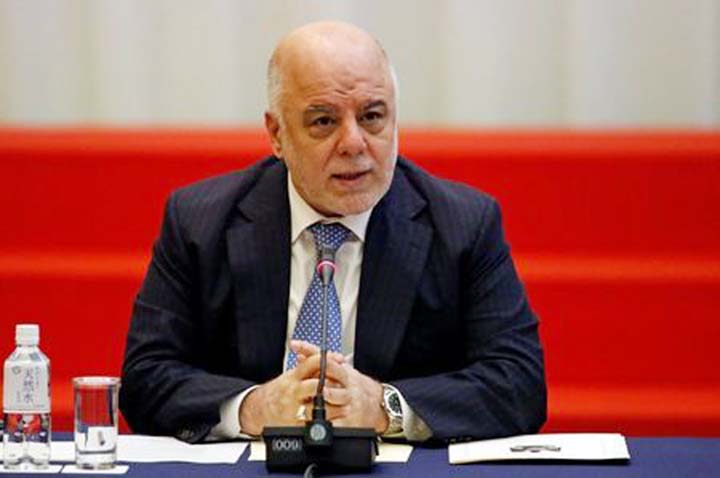
Reuters, Baghdad :
Prime Minister Haider al-Abadi’s list appears to be leading in Iraq’s parliamentary election followed by influential Shi’ite cleric Moqtada al-Sadr’s alliance, an election commission source and a security official told Reuters.
The sources cited unofficial initial results.
Iraqis voted on Saturday in the first election since the defeat of Islamic State militants inside the country. Final results are expected on Monday.
Turnout was low at around 45 percent, according to the election commission.
Abadi, a rare ally of both the United States and Iran, was mainly concerned with fending off Shi’ite groups other than Sadr’s alliance, which are seeking to pull the country closer to Tehran.
Unofficial results compiled by Reuters reporters in southern provinces also indicated that Sadr, a firebrand cleric who led a violent uprising against U.S. troops from 2003-2011, appeared to be making a strong showing.
If the Sadr list finished second, that would mark a surprise comeback by the cleric. He is popular among the poor but has been sidelined by influential Iranian-backed figures..
Iraqis voted on Saturday for the first time since the defeat of Islamic State, with Prime Minister Haider al-Abadi, a rare ally of both the United States and Iran, trying to fend off powerful Shi’ite groups that would pull the country closer to Tehran.
Iraqis expressed pride at the prospect of voting for the fourth time since the fall of dictator Saddam Hussein, but also said they had scant hope that the election would stabilize a country beset by conflicts, economic hardship and corruption.
Turnout was 44.52 percent with 92 percent of the votes counted, the Independent High Electoral Commission said, significantly lower than in previous elections. Results are due to be officially announced on Monday.
There were tensions in the oil-rich province of Kirkuk where the governor demanded a manual recount and declared a curfew to prevent any ethnic or sectarian clashes between its Kurdish, Arab and Turkmen communities.
Two Kurdish parties clashed with assault rifles in the northern Iraqi city of Sulaimaniya amid accusations of ballot rigging, residents and officials said.
Voters will pass their verdict on Abadi, who has achieved the delicate task of maintaining relationships with both of Iraq’s main allies who are otherwise arch enemies: Iran and the United States.
Whoever wins the election will have to contend with the fallout from U.S. President Donald Trump’s decision to pull out of a nuclear deal with Iran, a move Iraqis fear could turn their country into a theater of conflict between Washington and Tehran.
Abadi, who came to power four years ago after Islamic State seized a third of the country, received U.S. military support for Iraq’s army to defeat Islamic State even as he gave free rein to Iran to back Shi’ite militias fighting on the same side.
But now that the military campaign is over, he faces political threats from two main challengers: his predecessor Nuri al-Maliki, and the leader of the main Shi’ite paramilitary group, Hadi al-Amiri, both closer than he is to Iran which has wide sway in Iraq as the primary Shi’ite power in the region.

